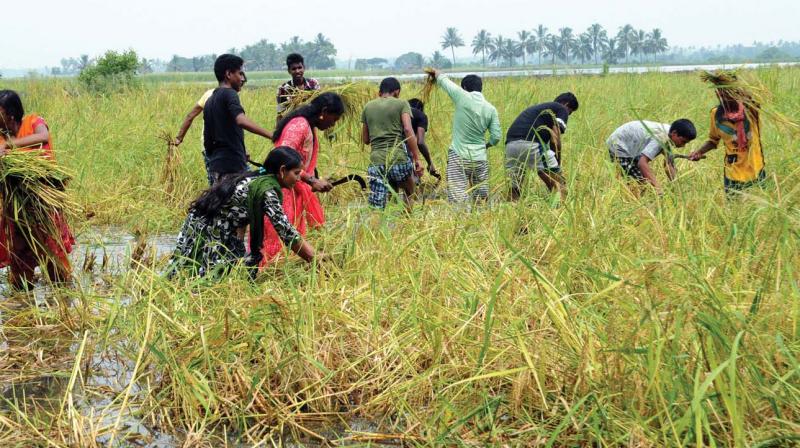Resilient Pokkali comes into global focus

Kochi: The Pokkali method of paddy cultivation in Ernakulam, which withstood the August floods, will be the subject of an international study about its resilience to climate change and natural disaster. Pokkali is a unique saline-tolerant rice variety that is cultivated using extensive aquaculture in an organic way in Thrissur and Ernakulam districts.
The International Information and Networking Centre for Intangible Cultural Heritage in the Asia-Pacific Region (ICHCAP), a category-2 centre of the UNESCO, has selected Centre for Intangible Heritage Studies (CIHS) of Sree Sankaracharya University of Sanskrit to undertake the study in this regard.
CIHS has been selected as an international partner for ‘2019 NGOs ICH Safeguarding Activities’ on UN Sustainable Development Goal-2 (SDG2). CIHS, which is the first academic centre exclusively on Intangible Cultural Heritage (ICH) in India, is one among nine organisations selected for such partnership from the Asia-Pacific region. The SDG2 aims at ending hunger, achieving food security, improving nutrition and promoting sustainable agriculture.
“In the aftermath of the 2018 floods, CIHS partnered in a series of programmes on heritage and disaster. It included workshops to rescue Kerala heritage and a national conference on heritage and disaster. Now it plans to launch the first short-term Certificate Programme on Intangible Heritage in India apart from other initiatives,” said Dr. B. Venugopal, head of CIHS.
“As part of the UNESCO ICHCAP partnership in 2019, we will work on the case study of Pokkali method of paddy cultivation in Ernakulam as an example of indigenous agriculture practice found to be resilient even during the 2018 Kerala floods, so as to help achieve the UN SDG-2. It will pave the way for protecting and promoting Pokkali cultivation,” said Dr. B. Venugopal, head of CIHS.
ICHCAP was established in 2011 and works within the framework of the 2003 Convention for the Safeguarding of the Intangible Cultural Heritage (ICH). To share community-based NGO activities and experiences at an international level, ICHCAP has worked with NGOs contributing to achieve the UN SDGs by collecting case studies and supporting and promoting the NGOs’ activities.

